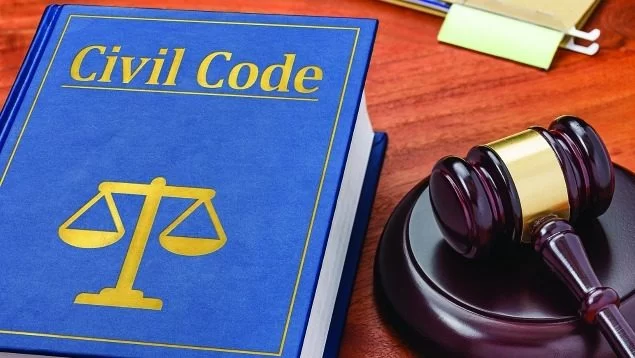- 1-Civil-Law-Basics-and-Workplace-Disputes
- 2-Key-Ways-Civil-Law-Impacts-Workplace-Conflicts
- 3-Real-World-Examples-and-Case-Studies
- 4-Practical-Advice-for-Employees-and-Employers
- 5-Why-Consulting-Fred-Miller-Lawyer-Is-Beneficial
1. Civil Law Basics and Workplace Disputes
Civil law serves as the backbone for resolving disputes between individuals or organizations, including conflicts that arise within the workplace. Unlike criminal law, which addresses offenses against the state, civil law focuses on private rights and obligations, making it highly relevant when employees and employers clash over issues such as contracts, discrimination, or workplace harassment.
Understanding civil law principles helps clarify how workplace disputes are approached legally. These principles often guide negotiations, mediations, and even lawsuits that arise when informal conflict resolution fails. Civil law provides a structured framework ensuring that both parties can seek fair remedies, such as compensation or injunctions, through courts or alternative dispute resolution methods.
Moreover, civil law intersects with employment law—a specialized branch addressing the rights and duties of both employers and employees. This intersection is critical in managing workplace disputes effectively, as employment contracts, labor regulations, and anti-discrimination statutes all operate under civil law principles.
1.1 The Role of Contracts in Workplace Disputes
Employment contracts, grounded in civil law, specify duties, benefits, and dispute resolution mechanisms. When disputes arise over breaches of contract, civil law principles dictate how courts or mediators interpret the terms and adjudicate accordingly. This emphasizes the importance of clear, well-drafted contracts in preventing misunderstandings and conflicts.
1.2 Employee Rights and Employer Responsibilities
Civil law enshrines employee rights, including protection against wrongful termination, workplace discrimination, and harassment. It also outlines employer responsibilities to maintain a safe and equitable work environment. These rights and responsibilities create a legal balance aiming to reduce workplace tension and provide recourse when conflicts emerge.
2. Key Ways Civil Law Impacts Workplace Conflicts
Civil law influences workplace disputes in several distinct ways, shaping how conflicts develop and get resolved. Below are key areas where civil law plays a pivotal role:
2.1 Enforcing Employment Agreements
When employees or employers allege breaches of employment agreements, civil law mechanisms enable parties to seek enforcement or compensation. For example, if an employer fails to pay agreed wages or an employee violates a non-compete clause, civil courts can adjudicate these claims based on contract law.
2.2 Protecting Against Discrimination and Harassment
Civil law incorporates protections against unlawful discrimination based on race, gender, age, disability, or other protected classes. Victims of workplace harassment or discrimination can bring civil suits seeking remedies like damages or policy changes. This legal protection fosters accountability and encourages employers to enforce anti-discrimination policies.
2.3 Facilitating Mediation and Alternative Dispute Resolution
Civil law often encourages mediation as a first step before litigation, promoting faster and less adversarial resolutions. Mediation can help preserve workplace relationships and reduce costs. Legal frameworks under civil law ensure mediation agreements are binding and enforceable, giving parties confidence in this approach.
2.4 Addressing Wrongful Termination and Retaliation
Employees who believe they were unfairly dismissed or retaliated against can invoke civil law protections. These claims involve examining whether terminations violated contractual terms or statutory protections, providing a route for legal redress through courts or employment tribunals.
3. Real-World Examples and Case Studies
To better illustrate civil law’s effect on workplace disputes, consider the following examples:
3.1 Case Study: Contract Dispute in a Tech Company
In 2023, a mid-sized tech firm faced a legal dispute when an employee claimed wrongful termination, alleging the employer violated the employment contract by not following proper dismissal procedures. The case, settled through mediation, highlighted how civil law principles and contract enforcement can help resolve workplace conflicts without prolonged litigation.
3.2 Story: Combating Workplace Harassment
A retail chain employee filed a civil suit after experiencing harassment, claiming the employer failed to act on multiple complaints. The case drew public attention, pressuring the company to overhaul its policies and training programs. This demonstrates civil law’s role in empowering employees and prompting organizational change.
3.3 Example: Mediation Success in a Labor Union Conflict
A dispute between a labor union and management over wage negotiations was successfully resolved through court-mandated mediation under civil law guidance. Both sides avoided costly strikes and legal battles, preserving long-term working relationships and company stability.
4. Practical Advice for Employees and Employers
Whether you are an employee or employer, understanding how civil law influences workplace disputes can equip you with better strategies to prevent and handle conflicts.
4.1 For Employees: Know Your Rights and Document Everything
Employees should be aware of their contractual rights and legal protections under civil law. Keeping detailed records of workplace incidents, communications, and any policy violations strengthens your position if disputes arise.
4.2 For Employers: Develop Clear Policies and Training
Employers must establish transparent workplace policies aligned with civil law standards, including anti-discrimination rules and clear disciplinary procedures. Regular training ensures staff understand expectations and legal obligations, reducing the likelihood of disputes.
4.3 Early Conflict Resolution Is Key
Both parties should seek early mediation or negotiation to resolve issues before escalating to litigation. Civil law frameworks support these alternatives, saving time, costs, and workplace morale.
5. Why Consulting Fred Miller Lawyer Is Beneficial
Given the complexities of civil law and its profound impact on workplace disputes, seeking expert legal advice is often the best course of action. Fred Miller Lawyer specializes in employment law and workplace conflict resolution, providing tailored guidance to both employees and employers.
With a strong track record in negotiating settlements, representing clients in court, and advising on contract drafting, Fred Miller Lawyer ensures your rights are protected and disputes are handled efficiently. Their practical approach not only resolves conflicts but also helps prevent future issues through proactive legal counsel.
If you find yourself facing a workplace dispute or simply want to safeguard your employment interests, consulting Fred Miller Lawyer can offer peace of mind and professional expertise customized to your situation.


 wiley law firm
wiley law firm neufville law
neufville law 225 broadway law firm
225 broadway law firm affordable legal center photos
affordable legal center photos harris law firm denver colorado
harris law firm denver colorado husain gatlin
husain gatlin